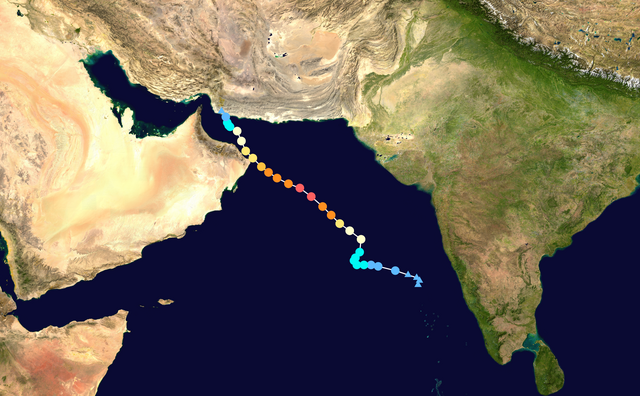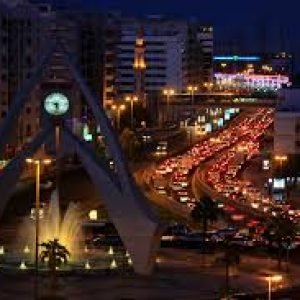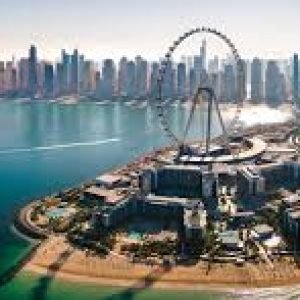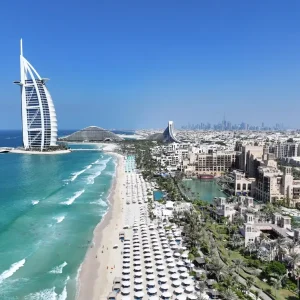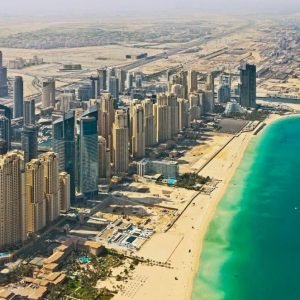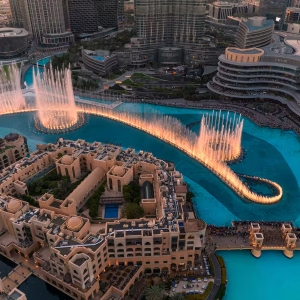Eighteen years ago, one of the most powerful tropical storms to ever hit the Arabian Peninsula—Cyclone Gonu—forced hundreds of residents in the UAE to leave their homes in a race against nature.
The storm not only tested emergency response systems but also left a lasting mark on communities along the eastern coast. For many who lived through it, the Cyclone Gonu UAE evacuation remains a chilling memory of how quickly life can change.
What Was Cyclone Gonu and How Did It Form?
Cyclone Gonu formed in the Arabian Sea in early June 2007. It was classified as a Category 5 tropical cyclone, the most severe classification for such storms. With wind speeds exceeding 240 km/h, it became the strongest cyclone ever recorded in the Arabian Sea.

As it moved northwest, it targeted the coasts of Oman and the UAE, causing major alarm across both countries. The cyclone rapidly gained attention from meteorologists and civil authorities due to its unusual path and growing strength.
UAE’s East Coast at Risk: Why Evacuation Became Urgent
The UAE’s east coast, especially areas in Fujairah, Khor Fakkan, Kalba, and Dibba, faced a real threat. Authorities had limited time to prepare as the storm’s strength intensified quickly.

Waves surged. Roads were blocked. Emergency services struggled to reach some areas.
Evacuation was the only safe option.
In Fujairah alone, hundreds of people—including families, elderly citizens, and tourists—were moved to safer locations. Schools, mosques, and community halls were converted into emergency shelters.
How the Cyclone Gonu UAE Evacuation Was Carried Out
Emergency teams, along with volunteers and police, worked overnight to relocate vulnerable residents. Buses and private vehicles transported people to shelters located inland. Loudspeaker announcements and door-to-door notifications helped spread the warning.
The National Emergency and Crisis Management Authority (NCEMA) coordinated with weather monitoring agencies to issue real-time alerts. Residents were urged not to panic but to follow official instructions.
Many left behind not just homes, but also pets, belongings, and their sense of safety.
What Happened During the Storm in the UAE
While Oman bore the brunt of Gonu’s full force—with widespread destruction and over 70 lives lost—the UAE’s east coast was also battered.
- Waves as high as 4 to 6 metres hit coastal towns
- Power outages affected large parts of Fujairah
- Flash floods damaged homes, roads, and businesses
- Fishing boats and small vessels were torn apart or lost
- Schools and businesses shut for several days
Despite the damage, no deaths were reported in the UAE, thanks to timely action and coordinated evacuation efforts.
Stories from Survivors of the Cyclone Gonu UAE Evacuation
Many residents who experienced the cyclone still remember the fear.
“I saw the sea rising like a wall,” said a Kalba resident. “The police came knocking, telling us to leave immediately. We packed only what we could carry.”
Another resident from Fujairah shared: “My children were terrified. We slept on the floor of a school that night, not knowing if we’d have a house to return to.”
For some, it was a once-in-a-lifetime experience. For others, it was a wake-up call about climate unpredictability and preparedness.
Aftermath: How Cyclone Gonu Changed Coastal Safety in the UAE
After the cyclone, the UAE authorities took several steps to improve disaster preparedness and coastal infrastructure:
- Early warning systems were upgraded
- Coastal barriers and drainage systems were reinforced
- Evacuation drills and response training were introduced
- Government launched public awareness campaigns for disaster safety
The Cyclone Gonu UAE evacuation pushed policymakers to rethink how prepared coastal towns are for natural disasters. Today, Fujairah and nearby areas are far better equipped to deal with storms and floods.
Impact on the Environment and Local Economy
Cyclone Gonu also caused significant environmental damage. Coastal erosion increased, coral reefs were damaged, and fishing communities suffered huge losses.
The storm disrupted the fishing and tourism industries, two of the region’s main income sources. Many fishing boats were destroyed, and the sea remained unsafe for days, delaying the restart of business.
The economic hit ran into millions of dirhams.
Could It Happen Again? Climate Change and Storm Risks

Cyclone Gonu remains a rare event for the UAE, but experts warn that climate change could increase the chances of more severe weather in the region.
The Arabian Sea, once considered relatively calm, has shown signs of more intense storm activity in recent years. Warmer waters can fuel stronger cyclones, and urban growth along coastlines increases the risk to lives and property.
The UAE continues to monitor and invest in climate resilience, including better building codes, early detection, and emergency protocols.
Lessons Learned from the Cyclone Gonu UAE Evacuation
The biggest lesson was clear: Preparedness saves lives.
From coordinated evacuations to improved shelters, the UAE’s response to Cyclone Gonu demonstrated the importance of planning, communication, and community support during a disaster.
It also highlighted the need for public awareness. Many residents admitted they had never imagined such a powerful storm could hit the UAE.
A Moment That Changed UAE’s Approach to Disasters
Eighteen years later, Cyclone Gonu still stands as a turning point in the UAE’s emergency response history. The Cyclone Gonu UAE evacuation was not just about moving people to safety—it was about uniting communities in a moment of uncertainty and survival.
The legacy of Gonu lives on, not in fear, but in preparedness, resilience, and community strength.
As we mark nearly two decades since the storm, the story of Gonu reminds us that nature is unpredictable, but human response can make all the difference.
Read More: Dubai Chocolate Craze Explodes as Lidl Enters the Sweet Battle

